Farmers heartbroken by animals killed on roads
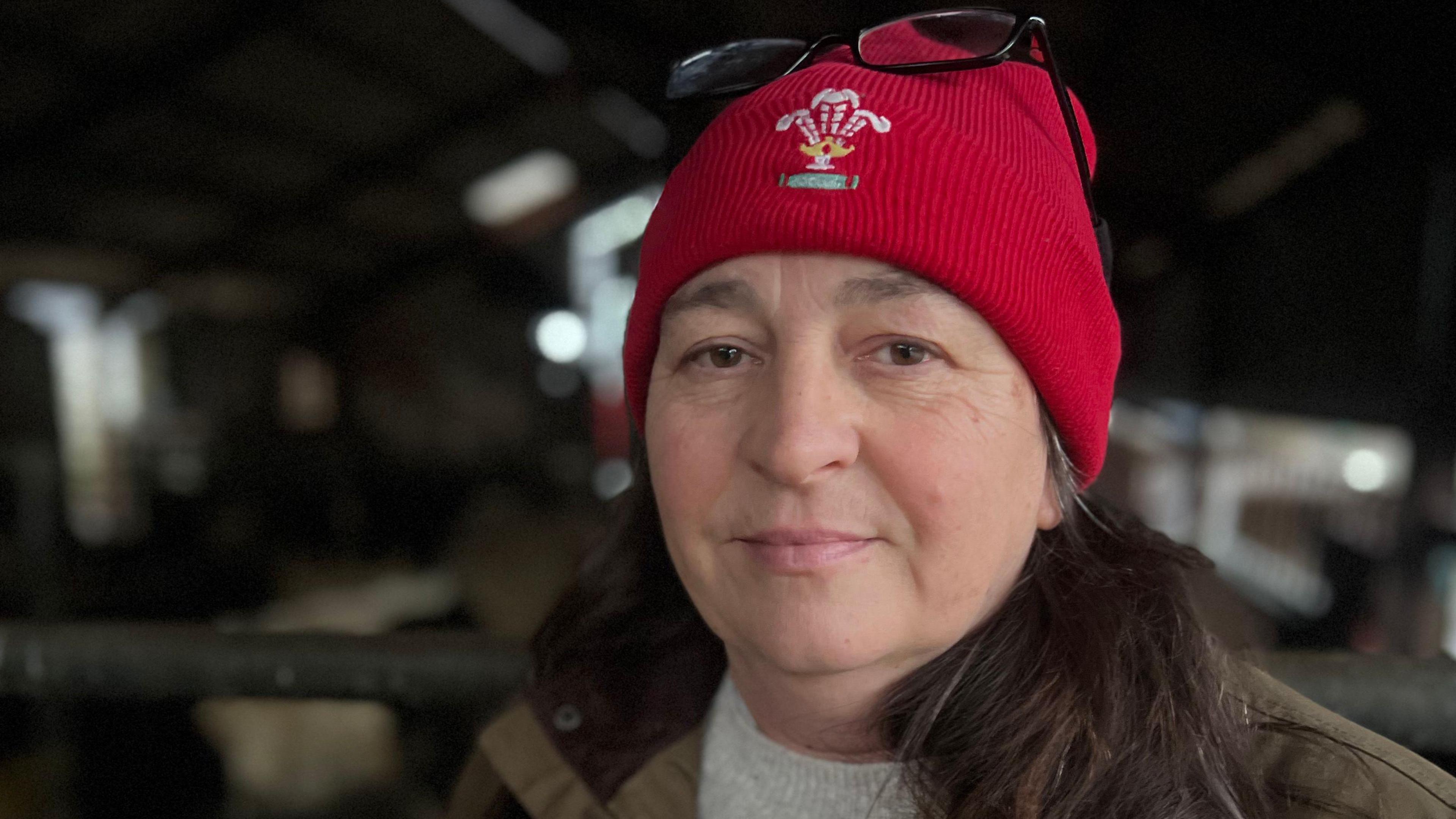
Farmer Sian Rees says the losses are "devastating"
- Published
Warning: This story contains an image of dead cattle
Farmers at a beauty spot where more than 200 animals have been killed by cars have described the situation as "heartbreaking".
Common land on the Gower Peninsula, near Swansea, has been grazed by cattle, sheep and horses for generations.
But one local farmer said the situation was so financially damaging, they were struggling to make ends meet.
Police and the local council have urged motorists travelling through the area to drive with care.
Selfie takers forced pony off cliff, farmer says
- Published13 September 2023
Porpoise found with head cut off on Welsh beach
- Published13 February 2024
Rare black fox is spotted roaming the streets
- Published19 April 2023
Sian Rees, who farms in the village of Llanrhidian along with her brother and sister, said she had lost 40 cows on the roads.
She said it took about five years to replace each one and raise a new calf up to the same level.
“My sister has to go out in the night and deal with situations that normal people shouldn’t have to deal with," she said.
“It’s dreadfully emotionally draining. You can spend weeks and weeks trying to get over it.”
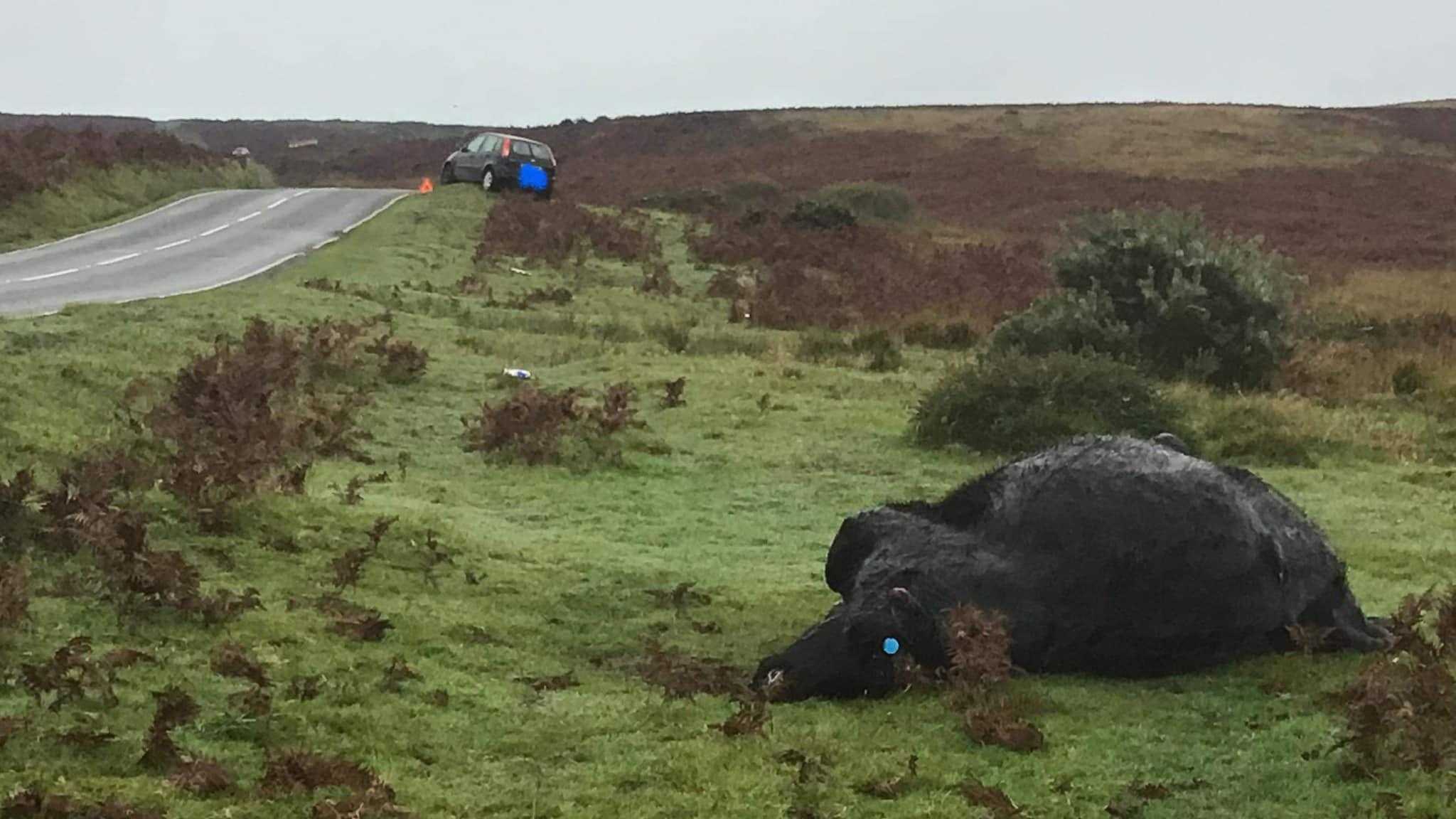
Farmer Sian Rees says the number of animals being killed is "emotionally draining"
She said the financial impact had caused them to struggle.
“It’s getting so bad now that we’re really looking at doing some other diversification because we can’t make this farm profitable at all.
“My brother doesn't get any wages really out of the farm, it’s quite devastating.”
A few miles away at Cefn Bryn, horse breeder Alyson Jones said the situation was "more heart-breaking emotionally than financially".
But she said she had lost "hundreds of thousands of pounds" by cars hitting her horses.
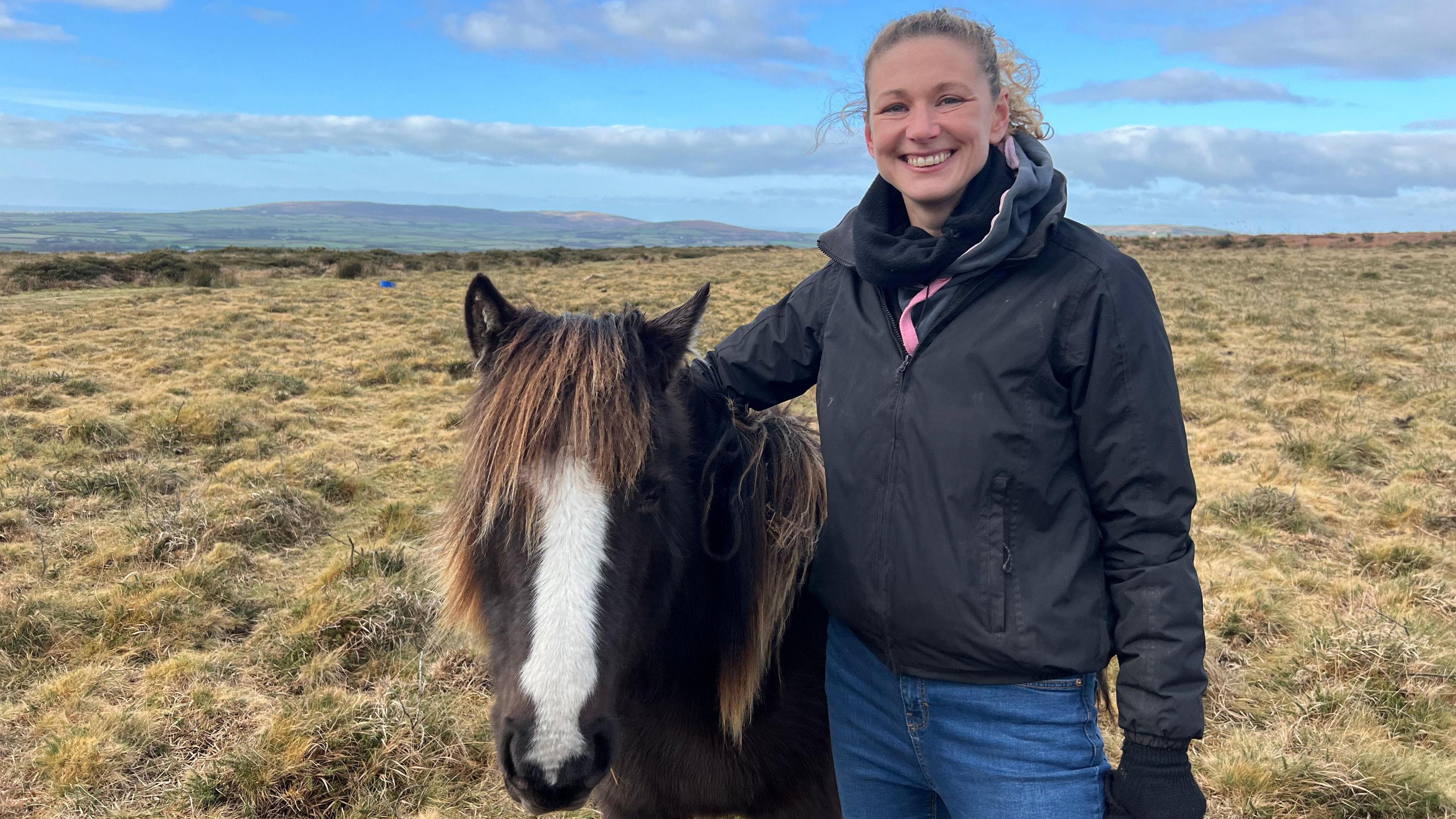
Alyson Jones says the situation makes her "sick"
“It makes you sick to the pit of your stomach," she said.
Her two young children also help with the horses, which are bred as riding ponies and for shows.
“They come out to the farm, they help me muck out, they brush them and everything so if they know something has happened they’re distraught. It’s horrible," said Ms Jones.
A few years ago, Alyson said a heavily pregnant mare was knocked down, but because it wasn’t reported, “she died in agony".
She has since bought reflective collars to make the horses more visible, but said they were expensive and could not be used on all animals.
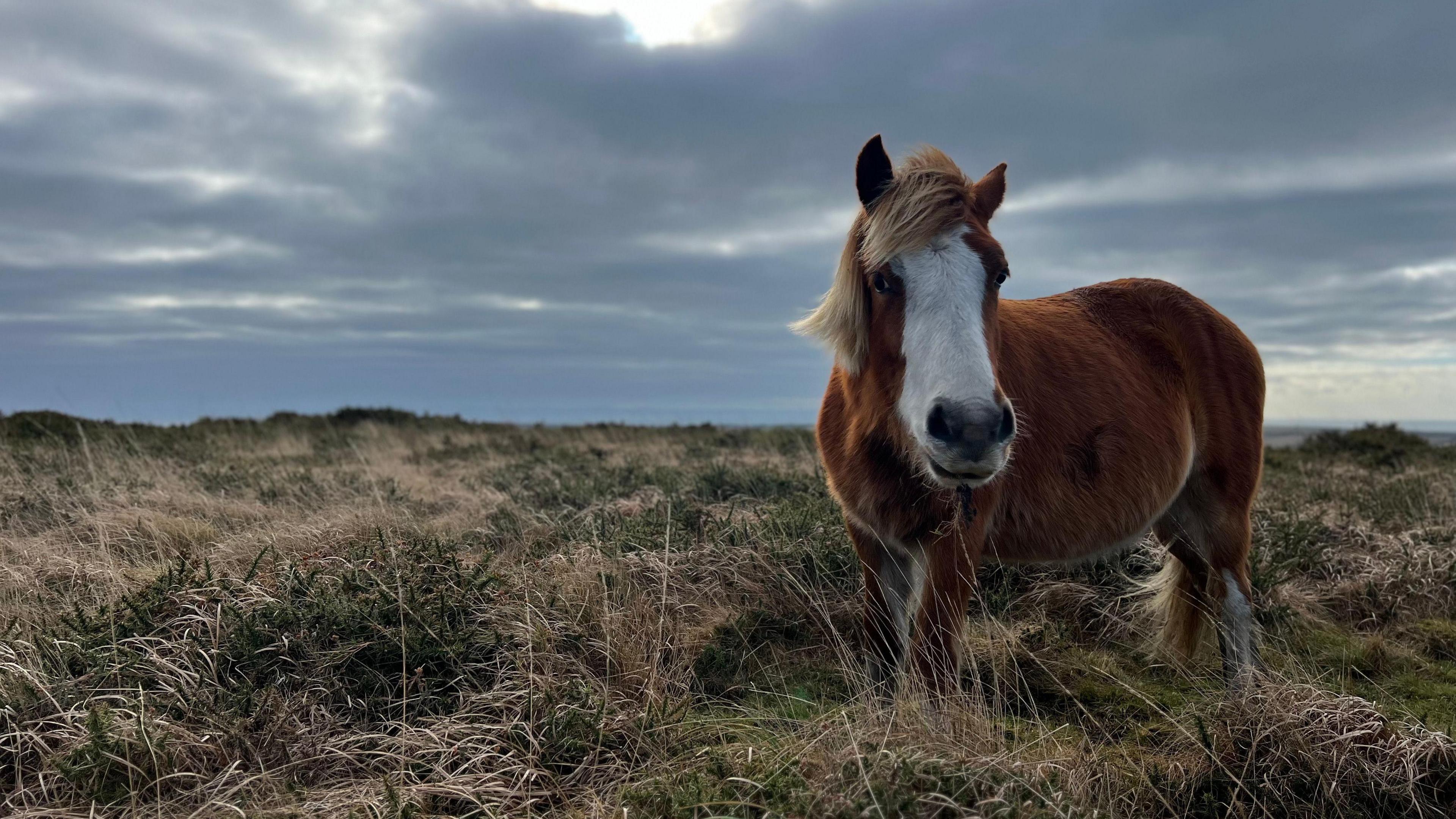
The common has been grazed by horses, sheep and cattle for generations
The Gower Commons Action group, which was set up in response to the number of animal deaths, said the situation "seemed to be getting worse” as more people visited the area.
According to their figures, there were more than 100 animals killed in collisions with vehicles in 2021, 44 in 2022 and 63 last year.
“You crash into a cow or a bull... you could well and truly die,” said Sam Hughes from the group.
“Until that happens people aren't going to grasp how serious this is unfortunately.”
The group said it had been arguing for more safety measures for a long time.
“Everybody is trying their best,” said Sam.
She said there were regular meetings with the fire brigade, police, local councillors and the commoners association, but felt it was not enough.
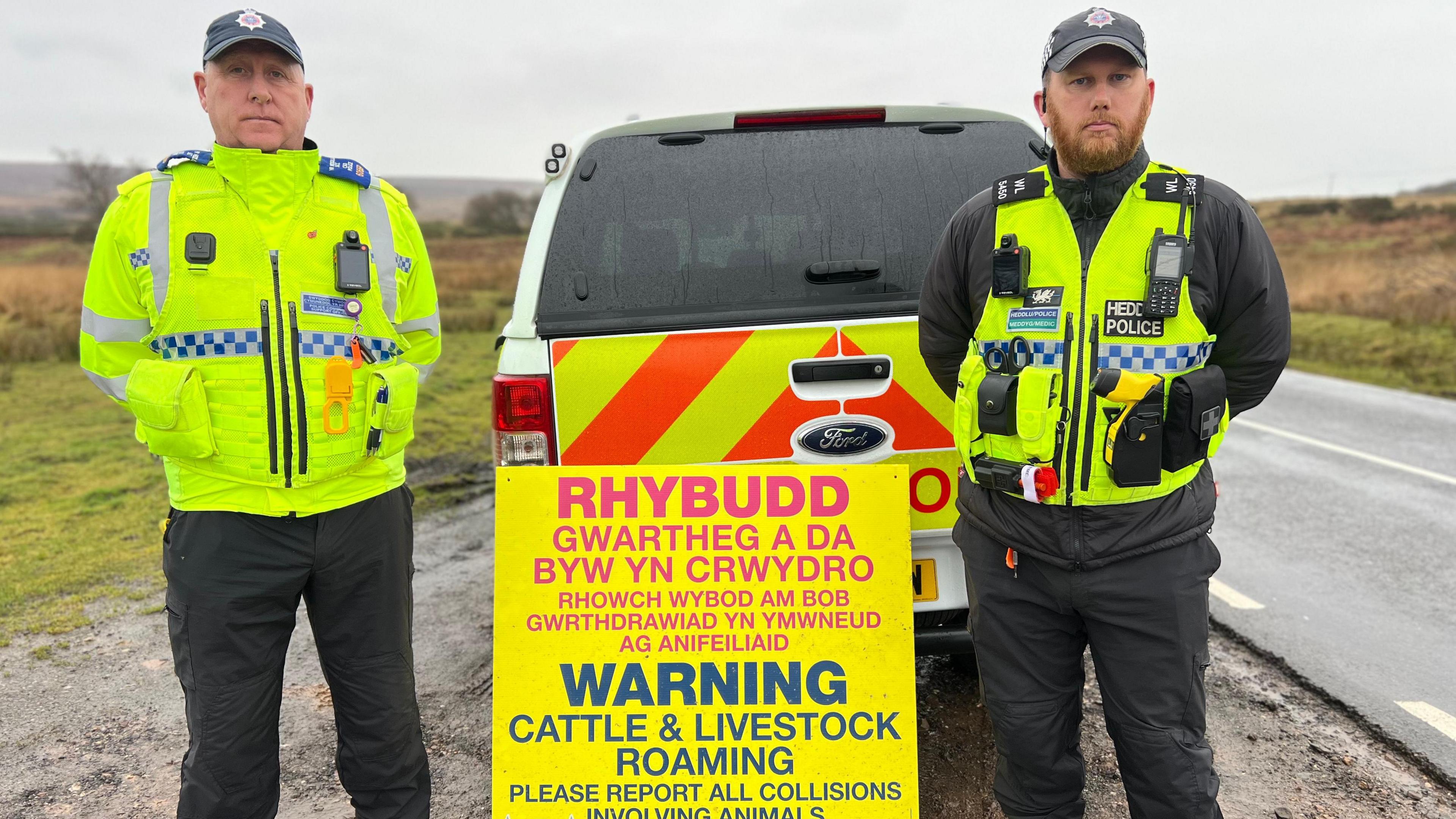
Motorists are already warned about roaming animals on Gower
South Wales Police has paid for signs to warn people of the risks and last year introduced mobile speed cameras to the area.
So far the force has prosecuted 130 people for speeding. However, the local team is keen to point out it is not just speeding that can cause problems.
"All the commons around here are 40mph (65km/h) and that's not a target, that's the maximum speed," said PC Simon Chadwick.
"So we’re asking drivers to be a bit more aware of the situation whether that's you drive at 20 or 10[mph], especially on these unlit roads.”
The police said there was also an issue with some accidents going unreported, and locals feeding animals at the side of the road which “encourages them” towards danger.
Swansea council said it had “previously reduced the speed limit of roads across the region, from 60mph (96km/h) down to 40mph”.
A spokesman added: “We would urge motorists to drive with care, drive appropriate to the conditions and observe the speed limits advertised."